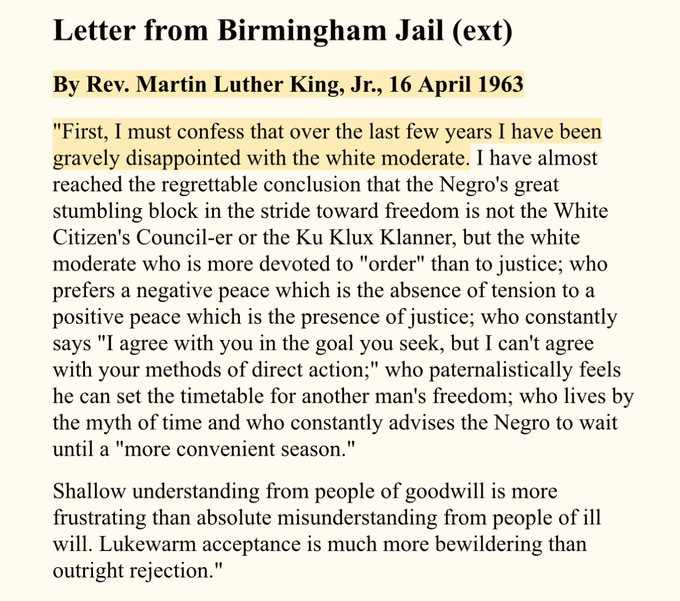How corporate media and Democrats use "pragmatism" to sell evil to liberals
The idea that people who support enormous injustice and terrible policies are “pragmatic” is one of the most subtly ideological and dangerous characteristics of corporate news.
Alec Karakatsanis, prominent civil rights lawyer, author, and founder of Civil Rights Corps, shared recently an analysis using the October 23 front page of The New York Times to explain how corporate media and the Democratic Party use the idea of “pragmatism” to sell evil to their liberal base.
Below is Alec’s analysis, in full:
Today’s front page in the New York Times is a good lesson in two of the most important tactics in propaganda.
First, notice the euphemism “pragmatism.” The idea that people who support enormous injustice and terrible policies are “pragmatic” is one of the most subtly ideological and dangerous characteristics of corporate news. This trope is used for decades.
People become unable to distinguish between someone who supports lofty values but who is wisely playing 4D chess by pretending not to support them for years versus someone who actually doesn’t support, say, universal health care, social security, peace, economic equality, etc.
For years, this euphemism has been weaponized to tell progressives: look, this powerful establishment politician agrees with your values but they are just being smart. Not only does this constrain the imagination for what is possible with organizing, but it’s often just a lie.
Sure some politicians with similar values are more effective than others both operating within strategic constraints and changing what is possible by working with social movements. But this trope is typically used to mask the difference between politicians with different values.
It’s a controversial empirical claim—concealed as unquestioned conventional wisdom—that certain ideological and strategic political positions are more realistic and strategic than others to obtain lofty goals. Which ones? Always the ones that happen to help people with power.
Second, notice the previous sentence. Something that would fit nicely in the NYT’s critiques of North Korean media. The evidence-free claims about what Harris wants, but also: the bold assertion that Harris wants the “progress” the NYT reader yearns for.
What you’re seeing here, reader, is not someone who enjoys the terrible things she’s supporting. Who may fire Lina Khan or who is supporting a genocide in violation of the “institutions” of U.S. and international law. It’s someone being patient—the only way to get good things.
And so the NYT tells people that this powerful politician agrees with the values of its progressive readers and what kind of society we all want. The only difference? “The pace of change.”
Reminds me of MLK’s Letter from Birmingham Jail:
As I write in my upcoming copaganda book, the NYT’s coverage of Democrats is like when you keep running into someone at dinner parties and they keep saying they’d LOVE to get together with you but every time you text them they are busy.
After a few decades of this you might want to consider other explanations.
We are facing an unprecedented threat of global authoritarianism. On the substance, part of why this matters is that this kind of propaganda covering for Democrats is enabling the rise of the far right.
A study from across Europe confirmed what many have argued in the US: adopting authoritarian, right-wing policies on things like immigration and crime **does not** help liberals win more votes. It's bad political strategy, in addition to being abhorrent: https://amp.theguardian.com/politics/2024/jan/10/adopting-rightwing-policies-does-not-help-centre-left-win-votes.
Here is what Alec wrote last year on the topic in his critique of Biden, Democrats, and a certain Washington Post reporter:







